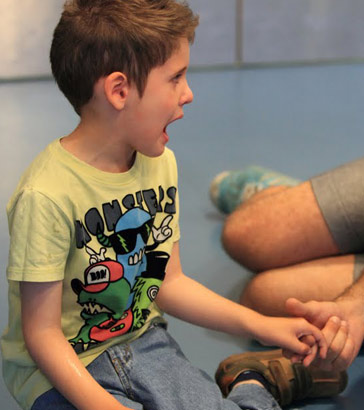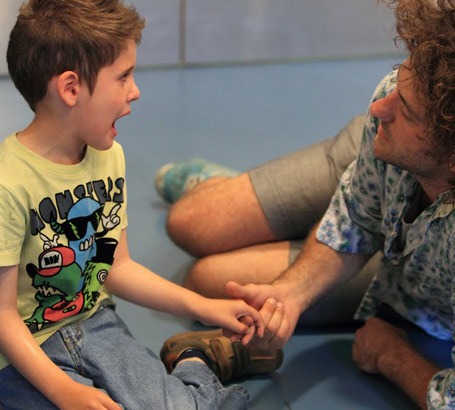Recognising our feelings

- As teachers and caregivers, it is important to recognise and acknowledge our own feelings when faced with challenging behaviour.
- It is how we act upon these feelings that will determine how successful we are in what we do.
- Some people feel it is important not to show emotional reactions, while others will show clearly how they feel. Either extreme can create more stress in situations that are already stressful.
- It is important to acknowledge to yourself how you feel. You have the right to feel angry, upset or hurt by what is said and done to you, but your actions in response to such feelings should be considered carefully.
Stay in control

When you are upset and made to feel angry, you need to take a mental and physical step back before committing yourself
to a considered response.
In any confrontational situation the first person who needs to calm down is the teacher/caregiver. To cope with a challenging
situation you need to maintain both firmness and presence of mind.
In order to help others control their feelings and behaviour we must control our own.
Remind yourself:

Remind yourself:
- "I am prepared, I can handle this"; "Seeking help is a sign of strength"; "I will not take this personally"
- I am prepared, I can handle this; Seeking help is a sign of strength; I will not take this personally
- There's no point in becoming angry - what does the behaviour mean?
- I'm the adult in charge; Reduce the anxiety; Find a way for you and the child to get out with dignity
- I will take it one step at a time; If I feel my heart pumping, I will slow down
- Start sentences with 'I' rather than 'you'
- Avoid judgmental remarks that imply blame
- Don't get drawn into the spiral of a power struggle.
Sending out emotional messages

- To manage a challenging situation, you need to communicate an 'emotional message'.
- This emotional message should signal safety and security.
- The communication can take many forms but should be at a level a child can access and understand.
Task

Find out what support (formal or informal) is available in your
school to help you cope with stressful situations.